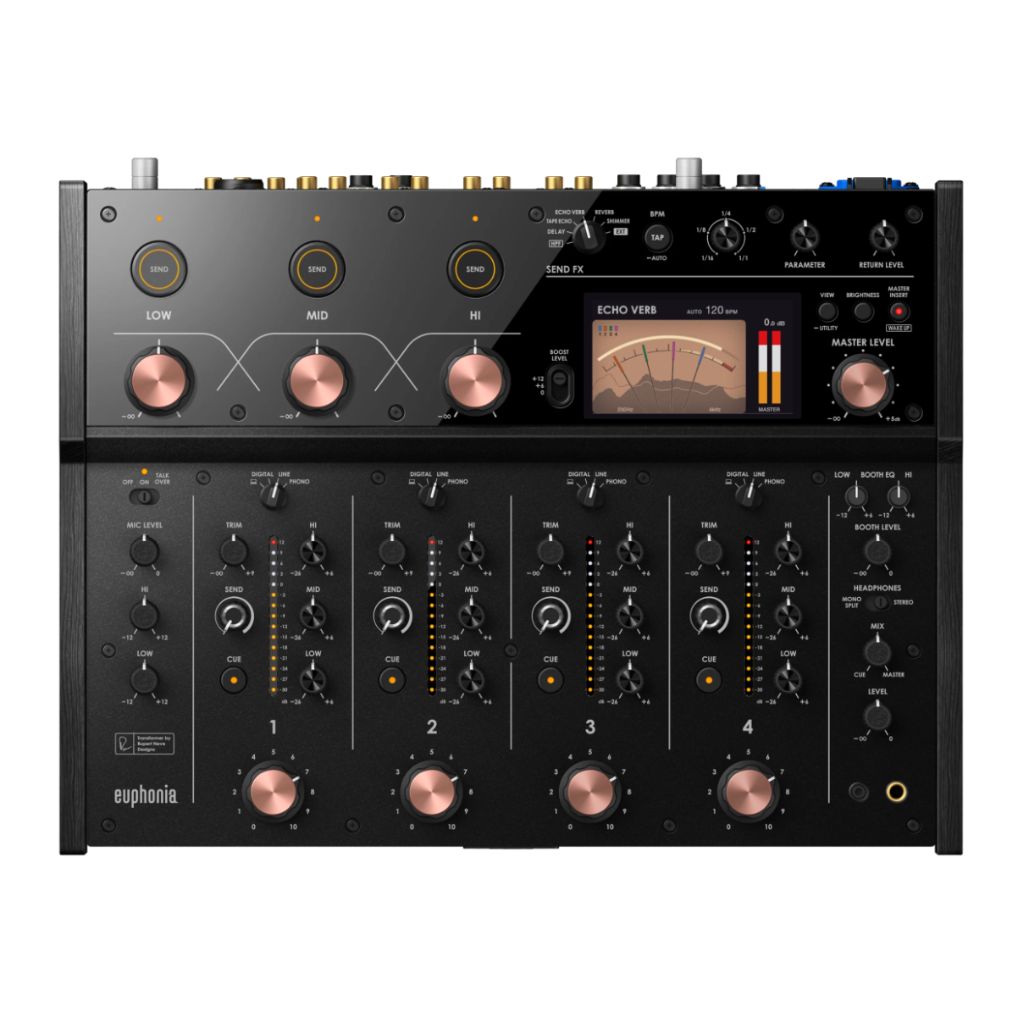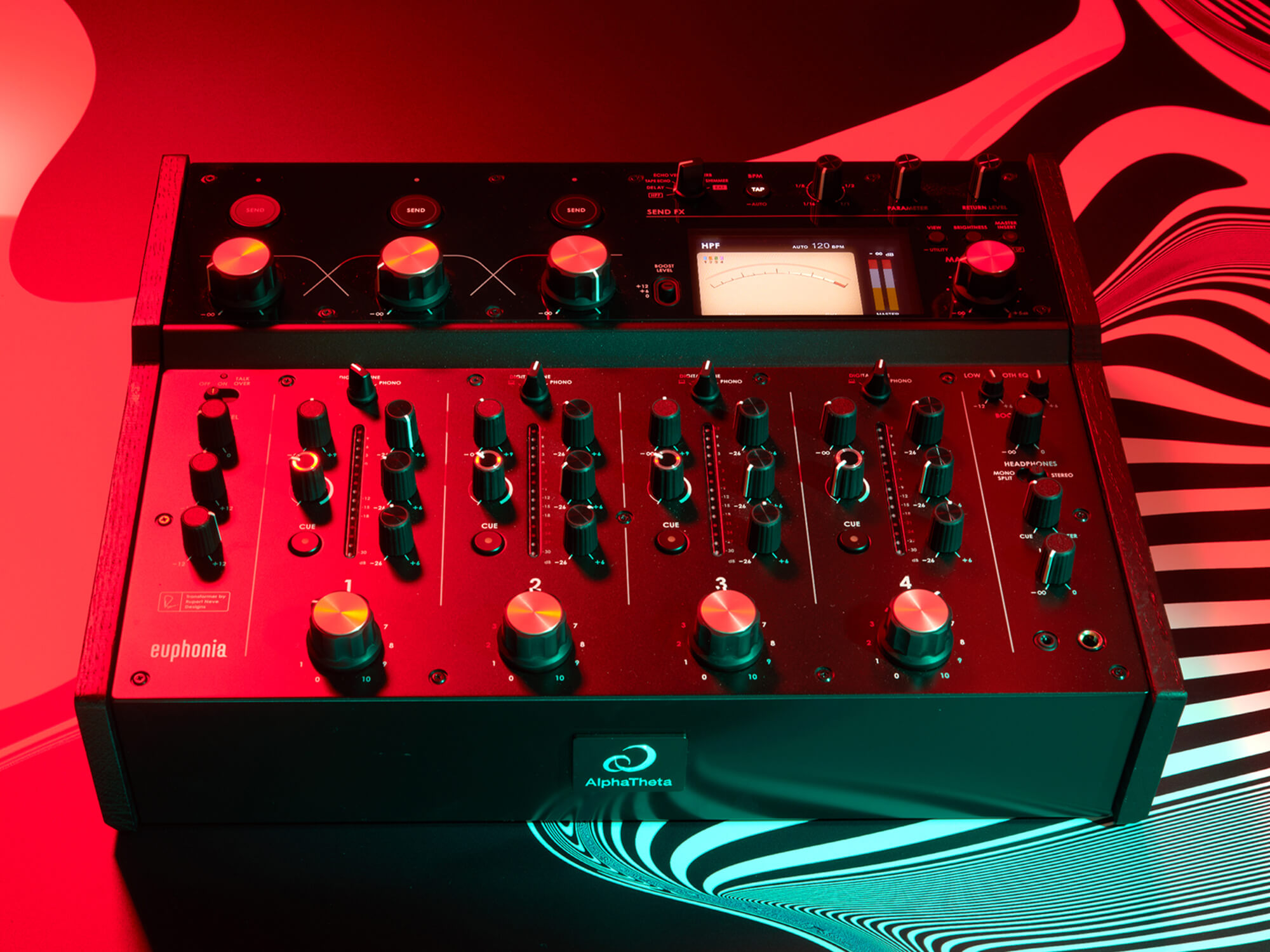
Why the Euphonia is AlphaTheta and Rupert Neve Designs’ dream collaboration
AlphaTheta’s debut DJ mixer is audacious — the first analogue/digital rotary DJ mixer in the world. Will this niche product make any impact on the industry?
AlphaTheta Euphonia. Image: Simon Vinall for MusicTech
AlphaTheta and Rupert Neve Designs both seem certain that the Euphonia rotary mixer is the nicest-sounding DJ mixer on the market right now. It does sound incredible — you’d hope as much for $3,800 — thanks to a combination of analogue and digital circuitry, custom-made transformers from Rupert Neve Designs and high-end components by AlphaTheta.
The Euphonia’s striking design is immediately inviting, flaunts some seriously intriguing features and is the brand’s move into a “new generation” of rotary DJ mixing. It’s already got the DJ industry talking — some DJs are gushing over it, others are less convinced, and the rest are just still perplexed by Pioneer DJ becoming AlphaTheta.
But as it moves on from its Pioneer DJ legacy, AlphaTheta is making a bold debut.
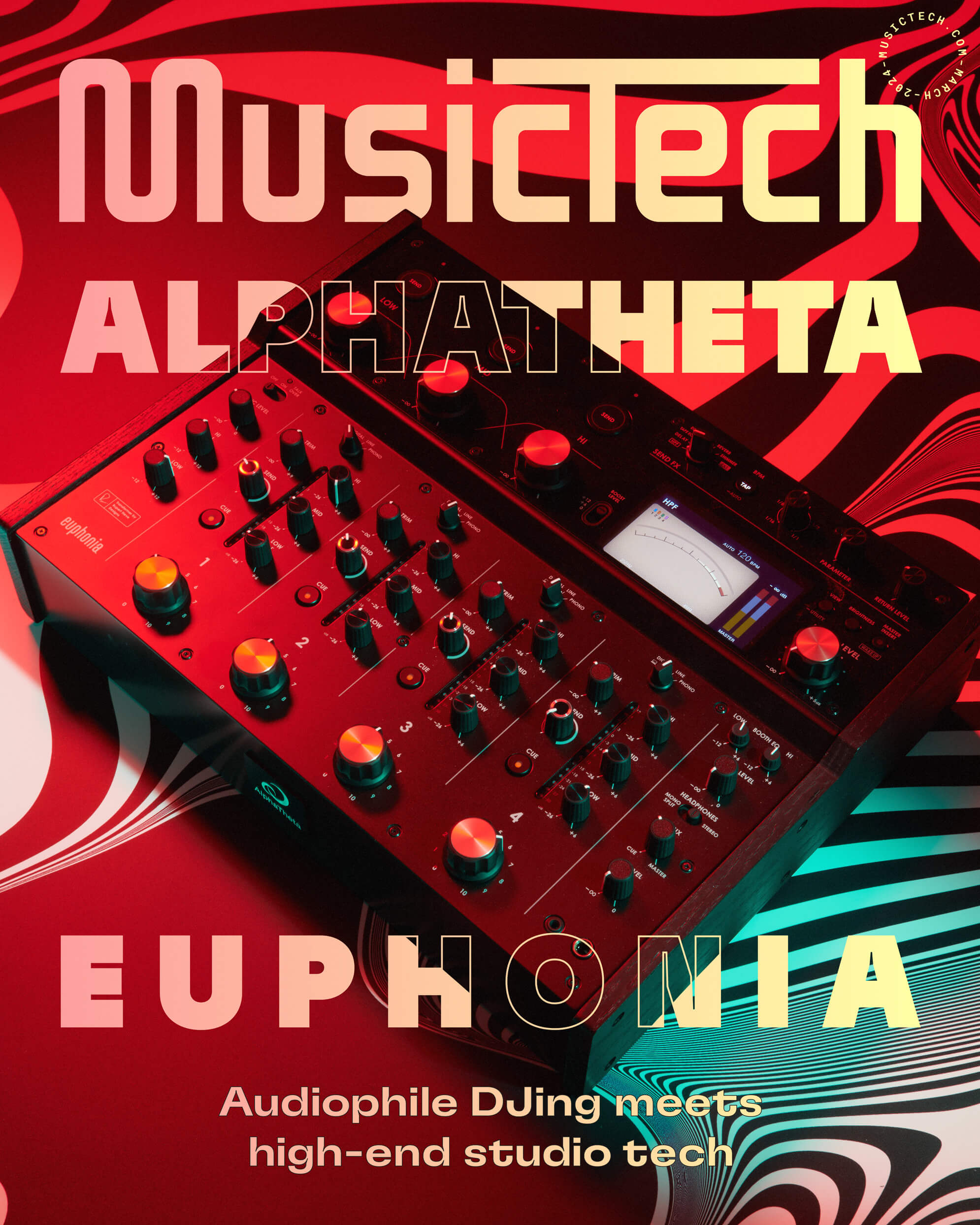
Sadly, my time with the Euphonia was too short to conduct an in-depth review. But it was just long enough to become desperately reluctant to hand the mixer back over to AlphaTheta. It’s deeply fun to use and really does have a unique character of being vintage yet modern. That feeling, of course, was intentional.
“It’s our first hybrid digital-analogue DJ mixer and we wanted the design to reflect that,” says AlphaTheta product manager Rob Anderson, calling in from Ibiza several days ahead of the Euphonia’s launch. “So sure, it looks kind of old-school, it’s got old-school elements to it but, at the same time, it’s futuristic. It’s like nostalgia meets futurism.”
READ MORE: AlphaTheta Euphonia rotary DJ mixer is a digital/analogue hybrid with Rupert Neve Designs components
Compared to its competitors, such as the MasterSounds Valve Mk2 and Union Audio’s Orbit.6, the Euphonia has a distinctly different approach to the retro-future appeal of rotary mixers. For one, the display in the top right has AlphaTheta’s novel take on traditional VU meters. The Mix Level Meter shows a needle per channel, offering a glance at all levels simultaneously, while a Spectrum Analyzer provides information on the spectral output of the music. The other obvious difference is the digital signal processing, with 32-bit AD/DA converters and 96kHz sampling rate, plus the built-in effects unit that boasts reverb, delay, tape echo, tape reverb, shimmer, and a high-pass filter.
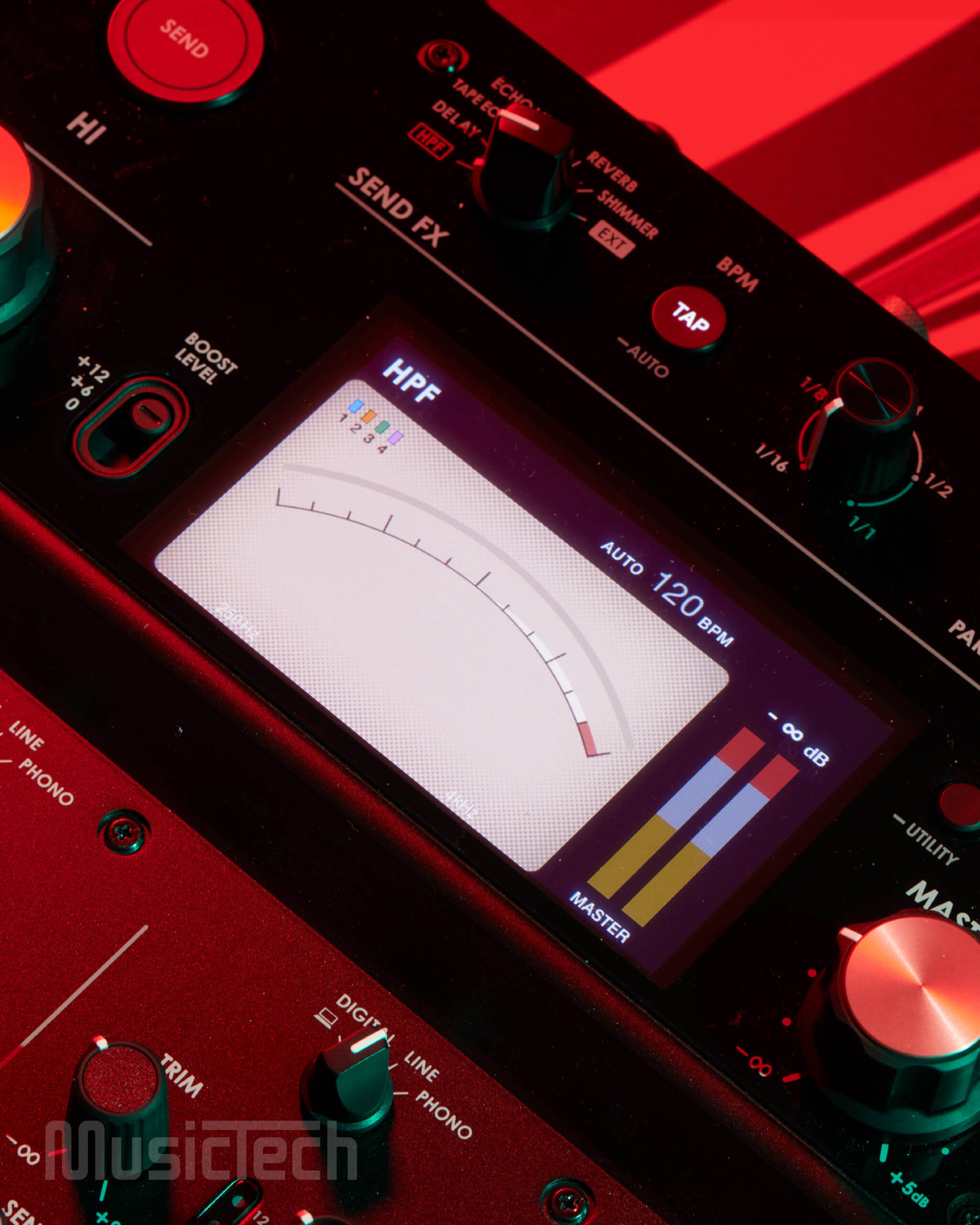
Paying homage to classic kit while innovating resonates profoundly with Rupert Neve Designs. Its trophy piece is The 5088, a stunning mixing console that deadmau5 assures “will never go out of style”. Chris Dauray, the director of brand and creative at Rupert Neve Designs tells me: “It’s the culmination of Rupert [Neve]’s entire design career as far as consoles go; it’s what he was always working to achieve for his entire life.”
When speaking with Dauray and Luke Smith, product manager at RND, I’m warmed by the sheer passion with which they talk about continuing the late Rupert Neve’s legacy. But lending a hand in building DJ gear is fairly unfamiliar territory for the high-end audio brand — was this partnership right for Neve?
“With AlphaTheta’s reputation, there was never a concern there,” says Smith on the collaboration. “We knew that it was right in line with our ethos and it was a nice marriage of what we’re good at and what AlphaTheta’s good at.”
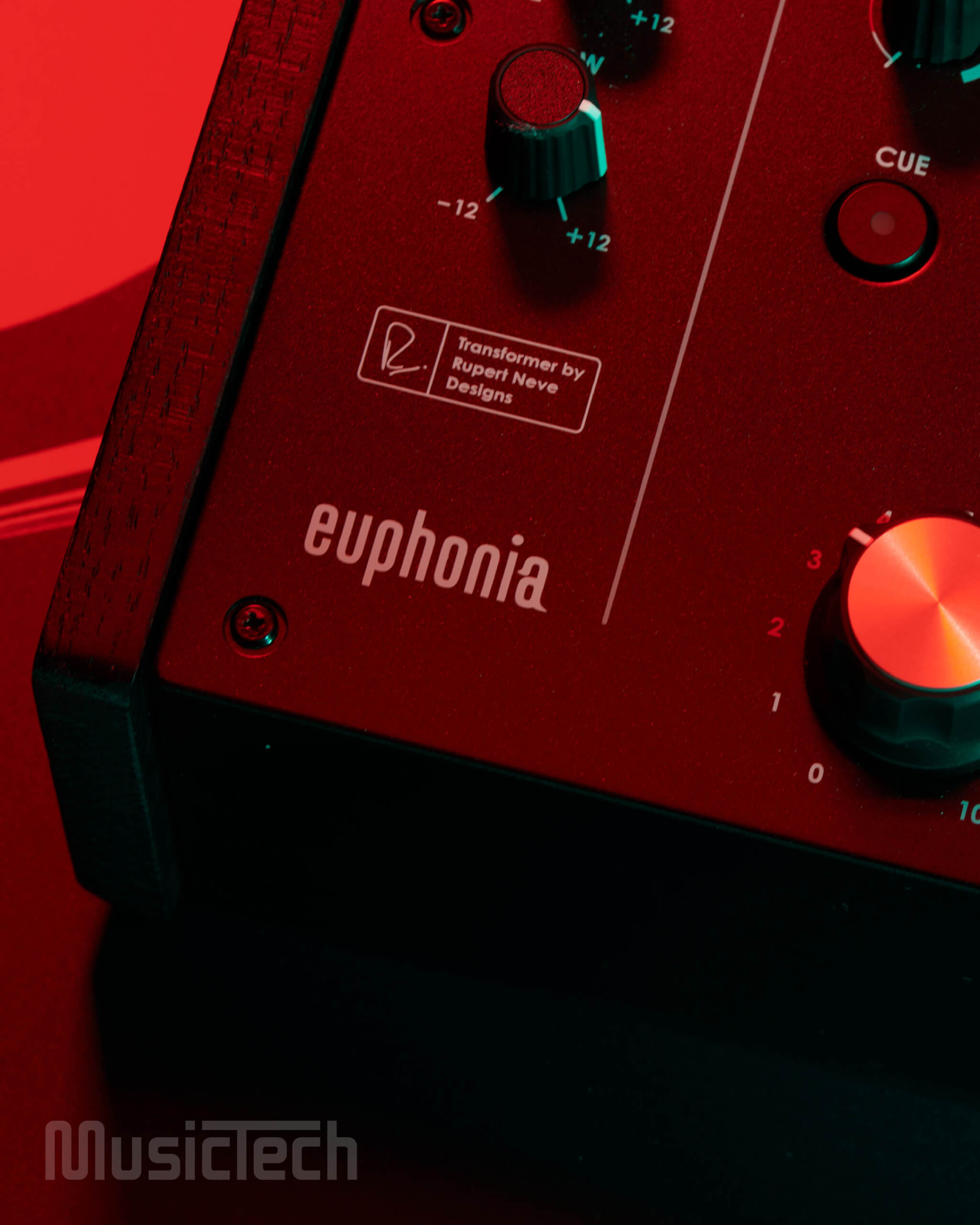
For AlphaTheta, getting RND on board for the Euphonia was a no-brainer. “It makes more sense for us to include a Rupert Neve circuit instead of developing our own analogue transformer — which we could have done but it just wouldn’t be as good,” says Anderson. “We wanted the Rupert Neve circuit. It just made so much sense so we went the extra mile to make sure that could happen.”
So, practically, what’s the impact of custom-made Rupert Neve transformers in the Euphonia?
“I was just blown away,” Anderson recalls of when he first heard the Euphonia with the RND transformers. “I’m not just saying this — we took the prototype to loads of venues across Europe. We spent a week in Berlin and then a week in Ibiza; we went to Sisyphos, Berghain, Kater Blau, Amnesia, DC10, Akasha, Club Chinois, HAAi… All the venues that have got unbelievable sound systems and highly skilled, super knowledgeable engineers and we compared it with other rotaries and against our own models — the V10, the DJM-A9 ��— and it was just really reassuring.
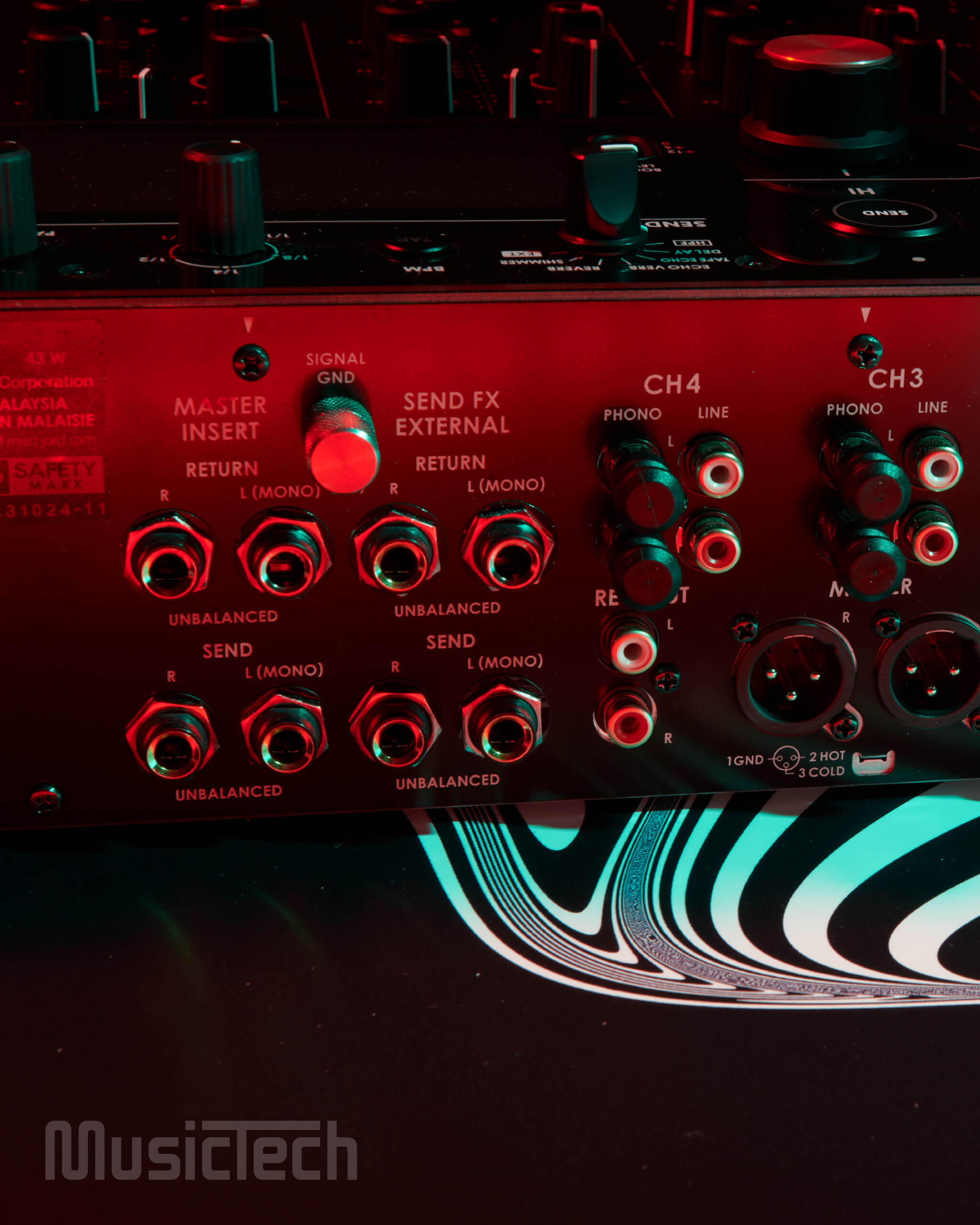
“As soon as we switched to the Euphonia, you see the engineer’s reaction and how impressed they are. Sound is subjective, right? But this is definitely the best-sounding mixer we’ve ever produced. It’s a bold statement but I think it’s the best-sounding mixer ever made. It sounds crazy good. But of course, that’s subjective.”
It’s no surprise that Anderson thinks so highly of the Euphonia, given his involvement in its creation. However, his 13-year tenure at Pioneer DJ and AlphaTheta and previous work as a music production educator means he’s seen a few audio products in his time, so perhaps the team really has created something remarkable.
Smith and Dauray go deeper into the theory of why the Euphonia’s sound is so pleasing: “We’re very careful about the type of harmonics that are being enhanced by [RND] transformers. It’s second-order and third-order harmonics. From a musical perspective, that means an octave and an octave and a fifth. Now, when you add that to a chord or an audio source, this makes it sound bigger, deeper more layered and more textured. And, in some ways, this is like the difference between a sine wave and a complex wave — it’s that harmonic content. This is where the emotion lives, in those harmonics.
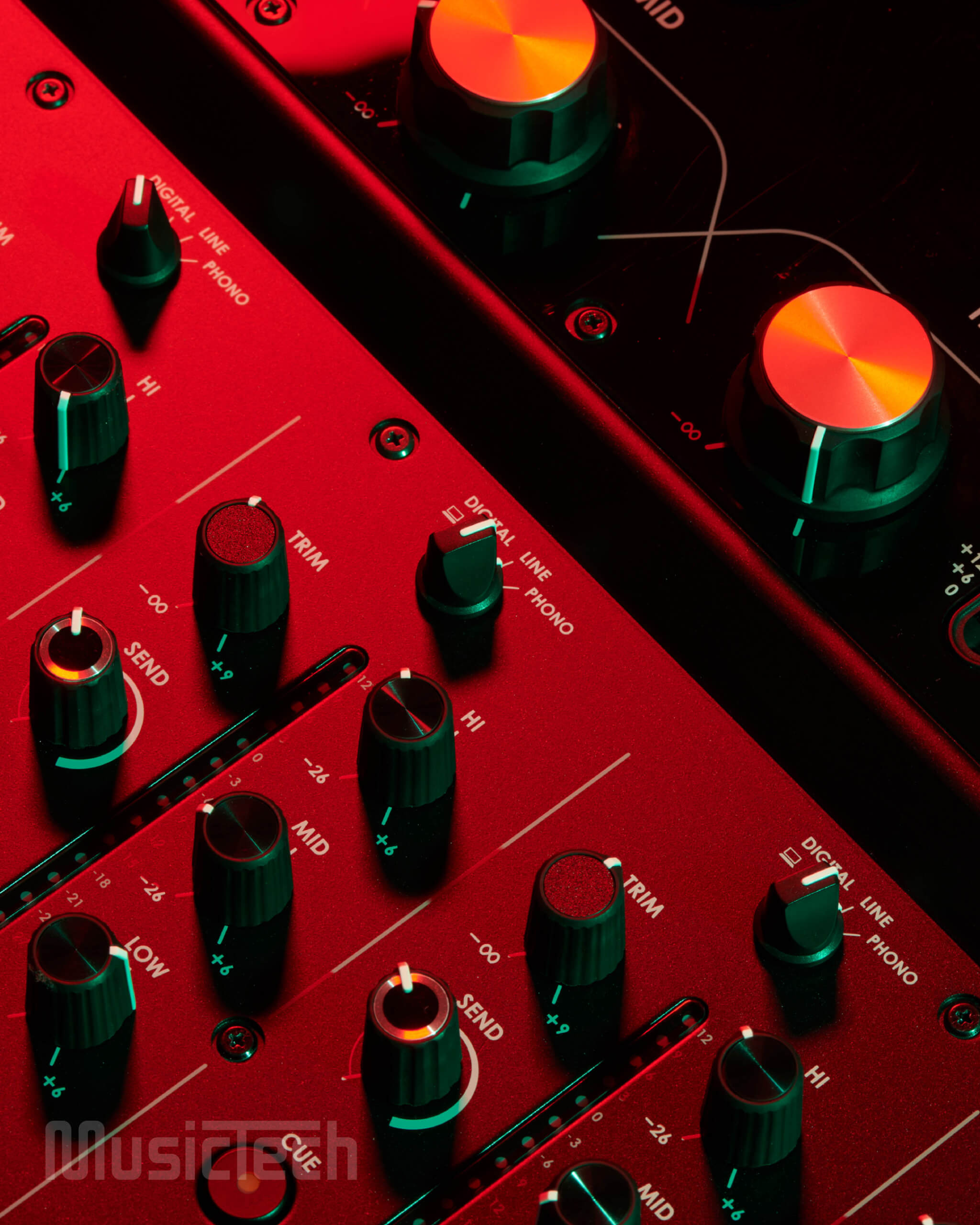
“And when you’re enhancing octaves, and octaves-and-a-fifths on top of the signal, you could theoretically draw a line between the emotional response of the listener and the enhancement of these harmonics. There’s a visceral reaction to it. They respond to that harmonic saturation. So this is why we do it…The end goal is that enhancement that makes people feel something.”
But where will be the main places that music lovers can go to hear the sound of the Euphonia and feel the difference? It’s not affordable enough for most DJs to keep in their home studios, its workflow isn’t suited to enough DJs to be a staple in clubs and venues, and it’s far too heavyweight for commercial DJs to be taking around to shows with them. The market for the Euphonia is immensely niche.
Anderson disagrees, however. After working with over 100 artists while making the Euphonia, he found that DJs of various styles enjoyed performing with the mixer. “The target user in mind was largely the house heads but it can work for more than just that. And while showing it to artists, we found that some will come in with the mindset that they don’t like a rotary mixer. When they start performing on it, they notice how expressive it is and they really like it. So I think it’s going to have a wider demographic appeal than who we just intended to when we were originally working on it.”
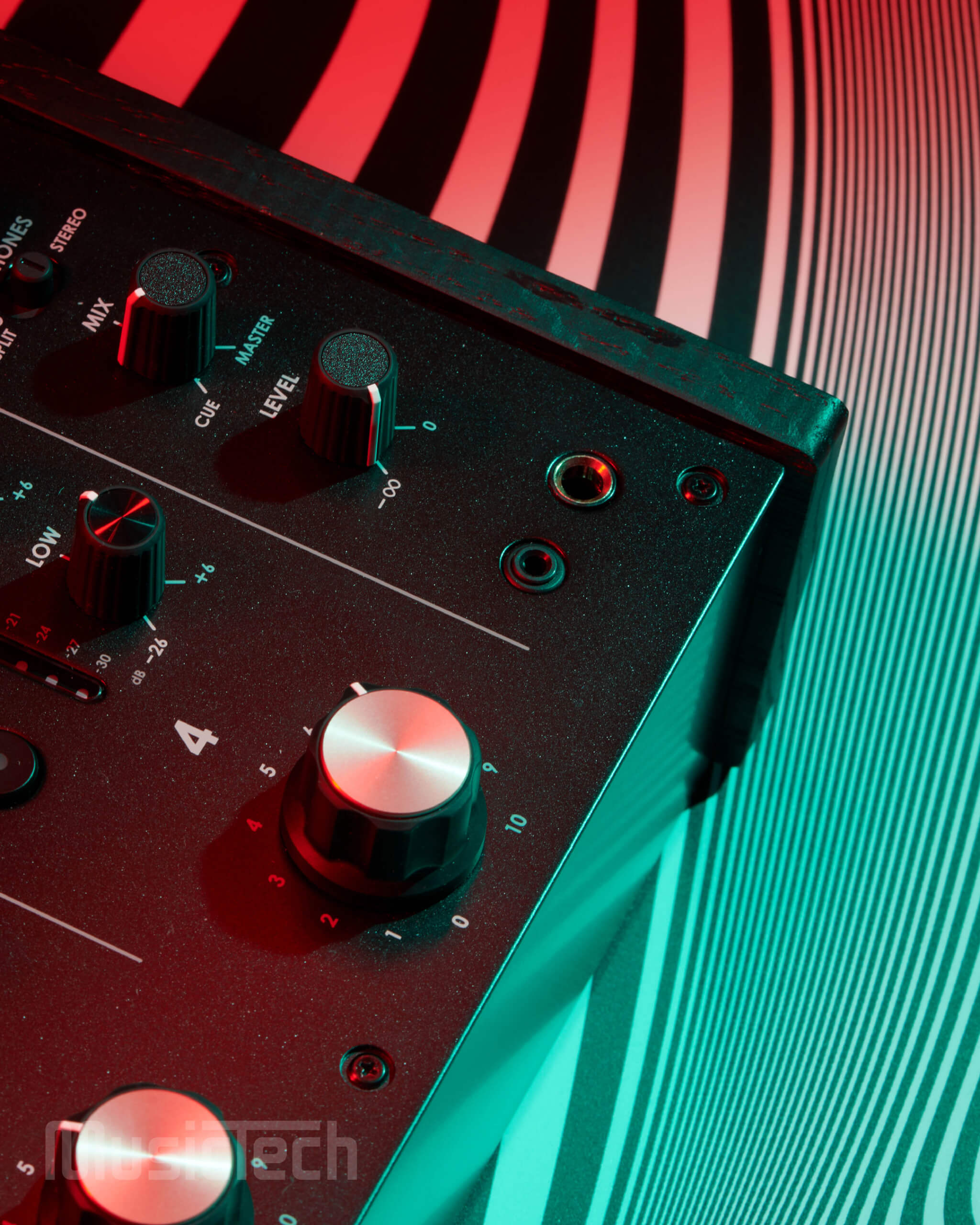
Your best bet at hearing the Euphonia, for now at least, is likely at your local hi-fi bars, which have seen a boom in recent years. Think of London’s Spiritland, Los Angeles’ Gold Line, Miami’s Dante’s Hi-fi and Tokyo’s Forestlimit. Here, old funk and disco records are rife, with precise mixing required for smooth transitions between tracks.
For this style of mixing, AlphaTheta designed the Euphonia with weighted knobs. A higher load is applied when you turn a knob slowly for delicate fine-tuning and a lower load is applied when you turn a knob quickly to drastically change volume. In addition, the 3Band Master Isolator and channel isolators — more precise than a standard EQ — sport a cutoff frequency and slope that’s designed specifically to highlight the kick, melody, and rhythm bands in a natural but sharp manner.
Hold on, though. DJs of this style and in the hi-fi bar niche are already well-catered for — MasterSounds, Union Audio and Ecler are established manufacturers of rotary mixers and are beloved by their cult following. Why is a major brand like AlphaTheta shouldering its way into a smaller market?
“Because the current options are limited,” says Anderson. “And they’re hard to source, there’s a long lead time on a lot of the boutique models and the aftermarket support can be questionable. So, aside from in lockdown, where every manufacturer under the sun had problems with providing stock, we don’t have that problem. We can develop these at mass. They’re not hand-built so we can develop these for the industry as and when they need them, meaning they’ll end up in loads of venues and they’ll get used more.”
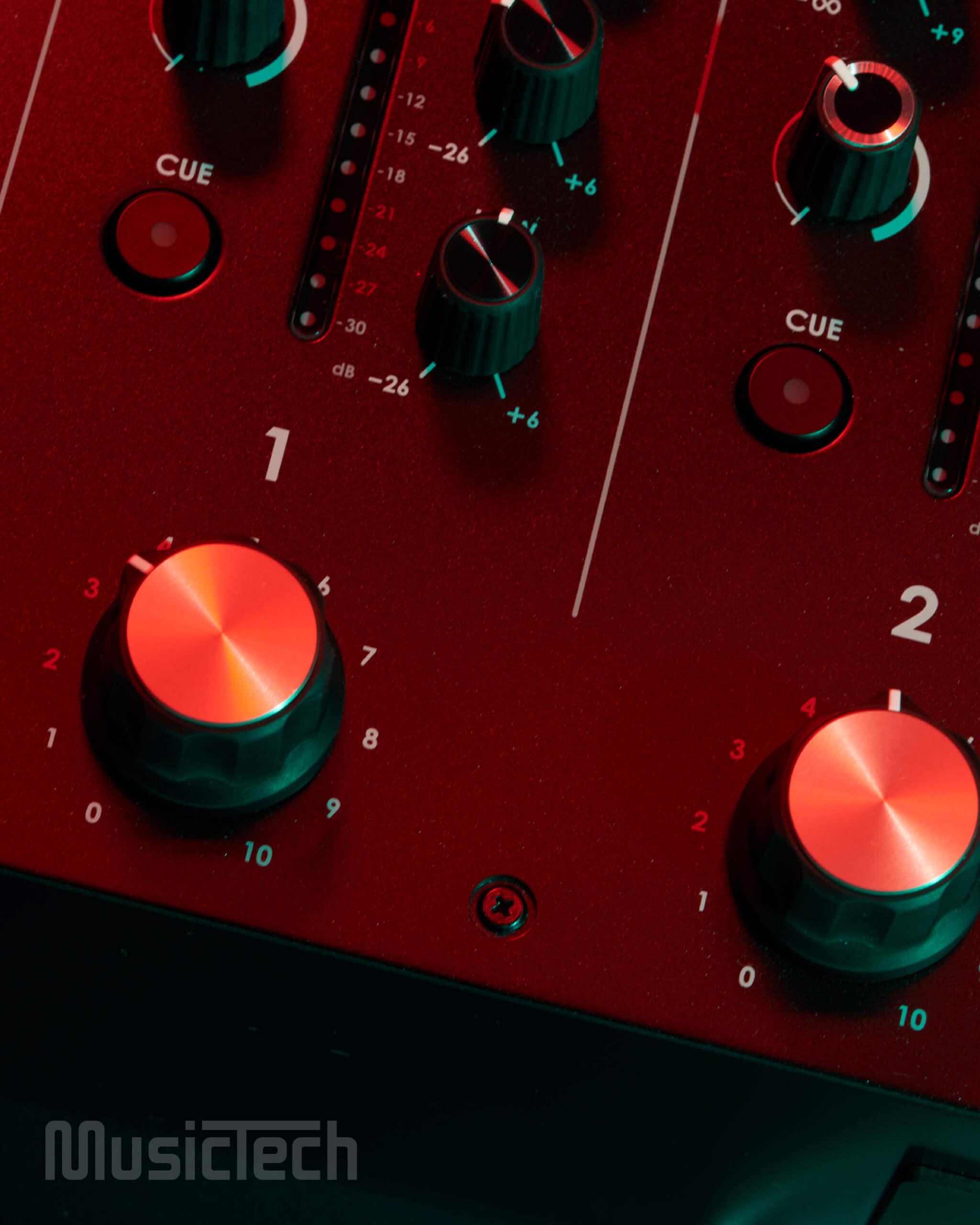
The Euphonia might give some the impression that AlphaTheta is trying to quell the independent mixer manufacturers. But it’s more about exposing DJs and music listeners to more top-standard audio quality and mixing. Hopefully, the reverse is true — that the Euphonia will actually boost sales of the independent brands.
“It’s never a bad thing to expose more people to proper hi-fi,” Dauray says. “It’s something that we are exposed to in the studio world a bit more than most. But once you’ve heard it, you have a new benchmark for what things can sound like and I would love to see more of that. Most people don’t have an opportunity to hear that and it’s a very illuminating experience, you know. When you hear proper hi-fi systems for the first time, you’re then always questing for that forever.”
“Subconsciously, the audience responds positively or differently to [hi-fi audio],” adds Smith. “I mean, the Euphonia does go hand-in-hand with these hi-fi bars — called jazz kissas in Japan — and I’m fascinated with the idea. And the volume is, for my older ears, now, at a reasonable level to have conversations. And it’s analogue from the record to the turntable to the stylus to the mixer, and the amplifier to the speakers. There’s a reason they’re being designed that way. There’s no doubt that people respond to it, viscerally and emotionally. So it’s hopeful for the future of what we do. You know, there’s a reason vinyl record sales are up. There’s a reason this jazz kissa thing, which originated in Japan, is spreading out over the world. And there’s a reason we’re still in business.”
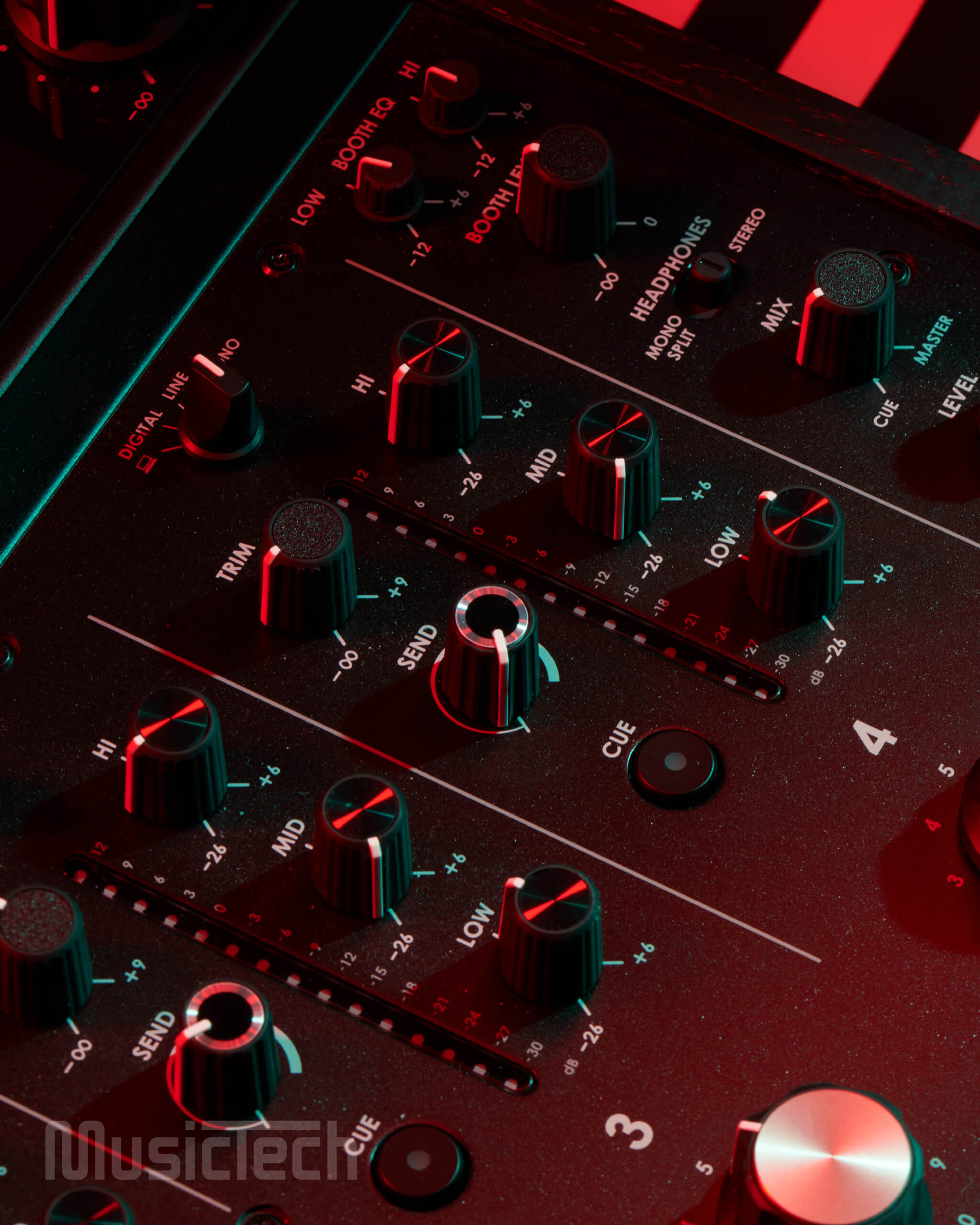
Despite some talk online about the Euphonia being a step backwards in the past, its appeal could be more forward-thinking than first assumed. Regardless of how it’s perceived, AlphaTheta is continuing to look to the future.
“We’re not going to be lazy. We’re going to strive for innovation. That’s kind of our fundamental purpose — to keep innovating and provide solutions to problems DJs don’t even know they have and to incentivise and stimulate the DJ industry and DJ culture.”
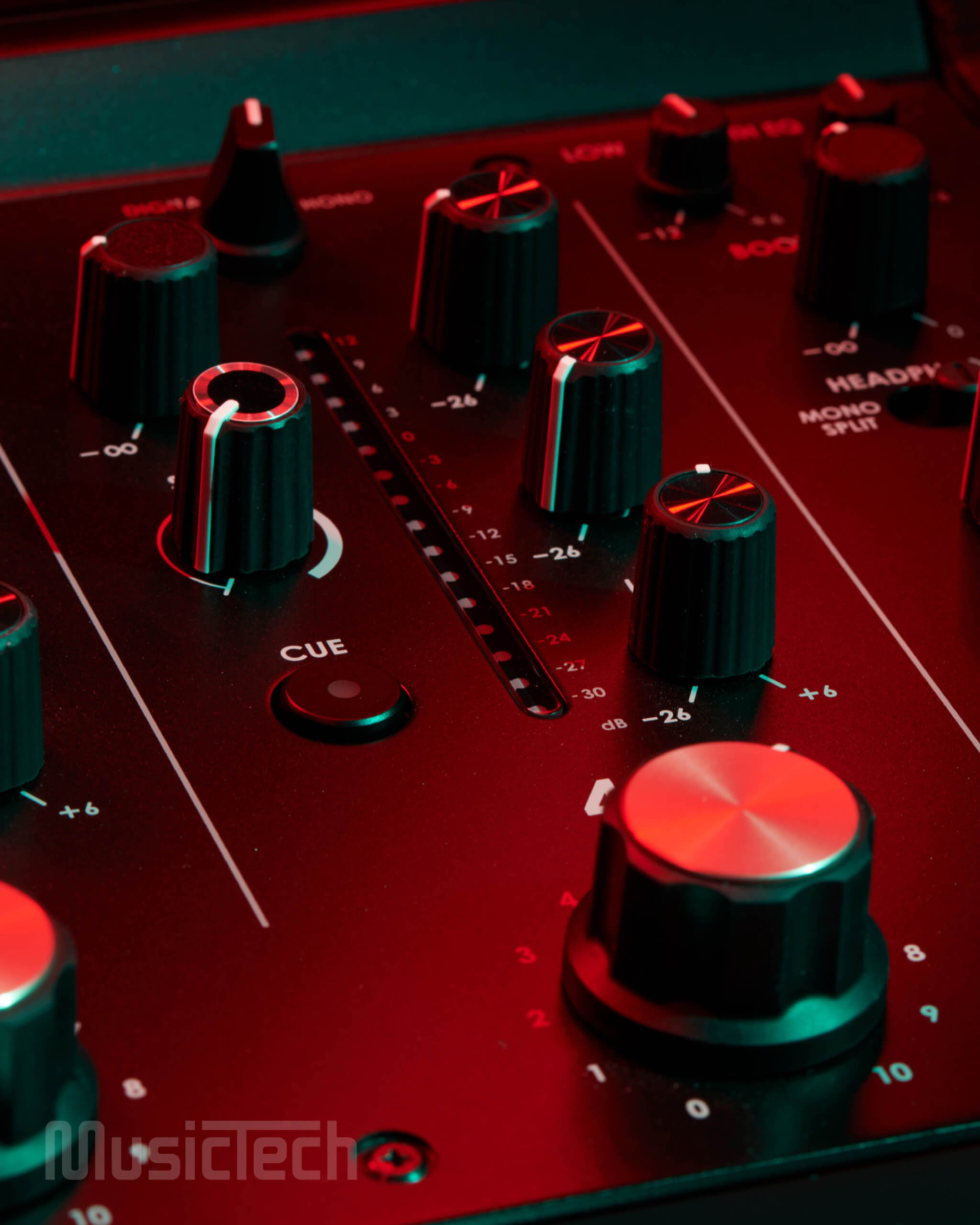
The Euphonia is a beautifully built DJ mixer with outstanding technology and innovative features that you can’t help but admire when you get your hands on it. But it’s not for everyone. It won’t be an industry-standard mixer in venues. It’s not accessible to most DJs. It is, however, a smart move by AlphaTheta and, in part, Rupert Neve Designs. There’s a movement happening where people desire highest-quality sound in venues and bars; boutique manufacturers are gaining popularity; and we’re seeing more hi-fi venues open up, bringing more work opportunities for DJs. The Euphonia is now a part of the wave.
And, perhaps most notably, because of the Euphonia launch, everyone’s talking about AlphaTheta…and Pioneer DJ.
